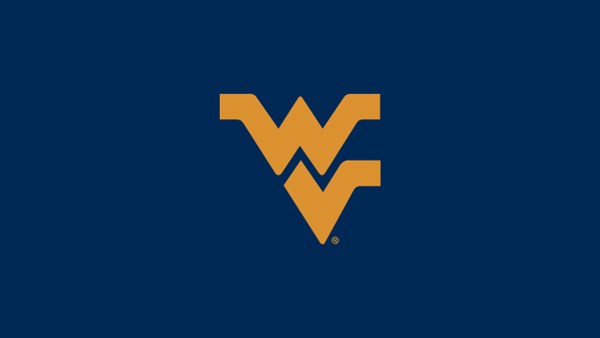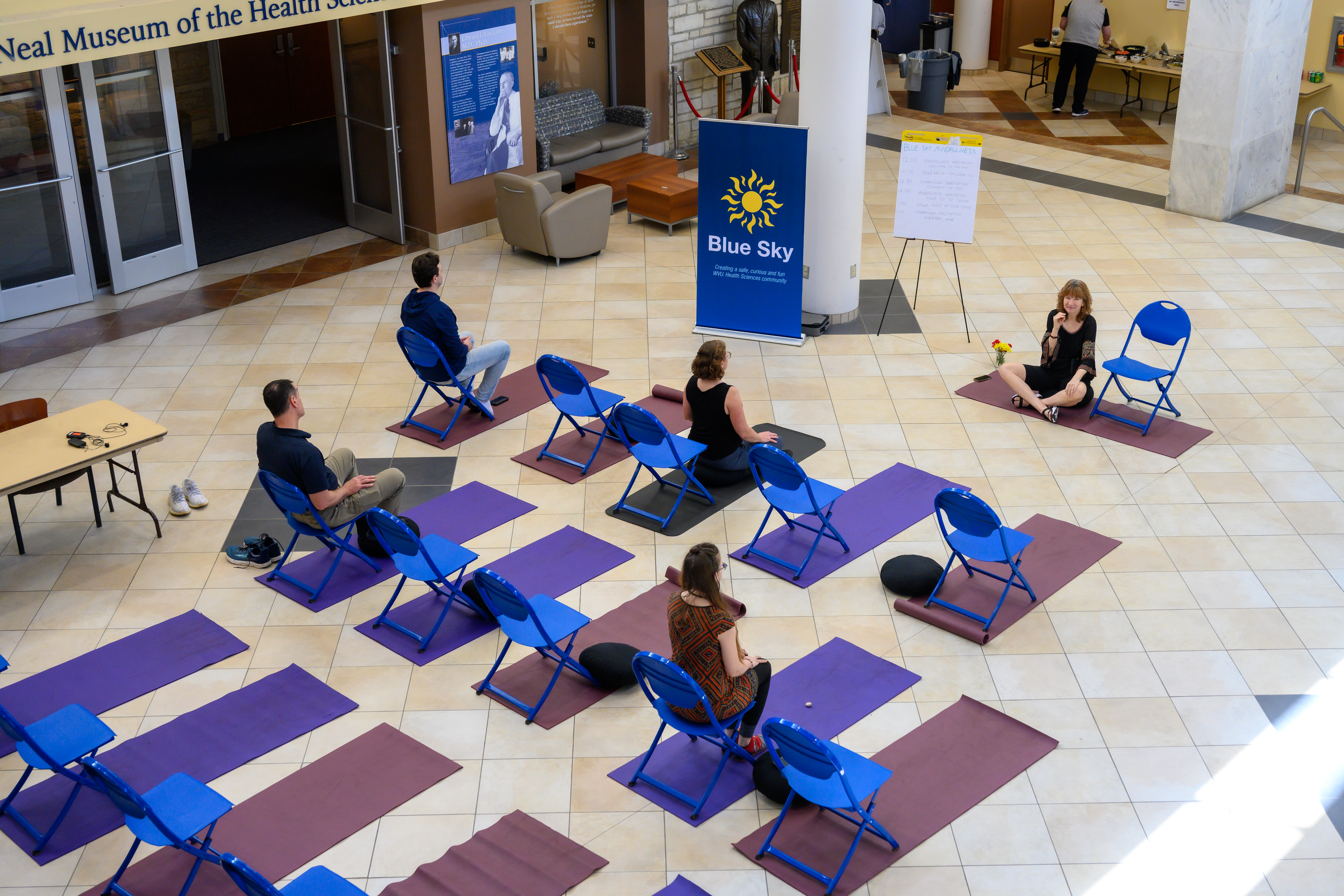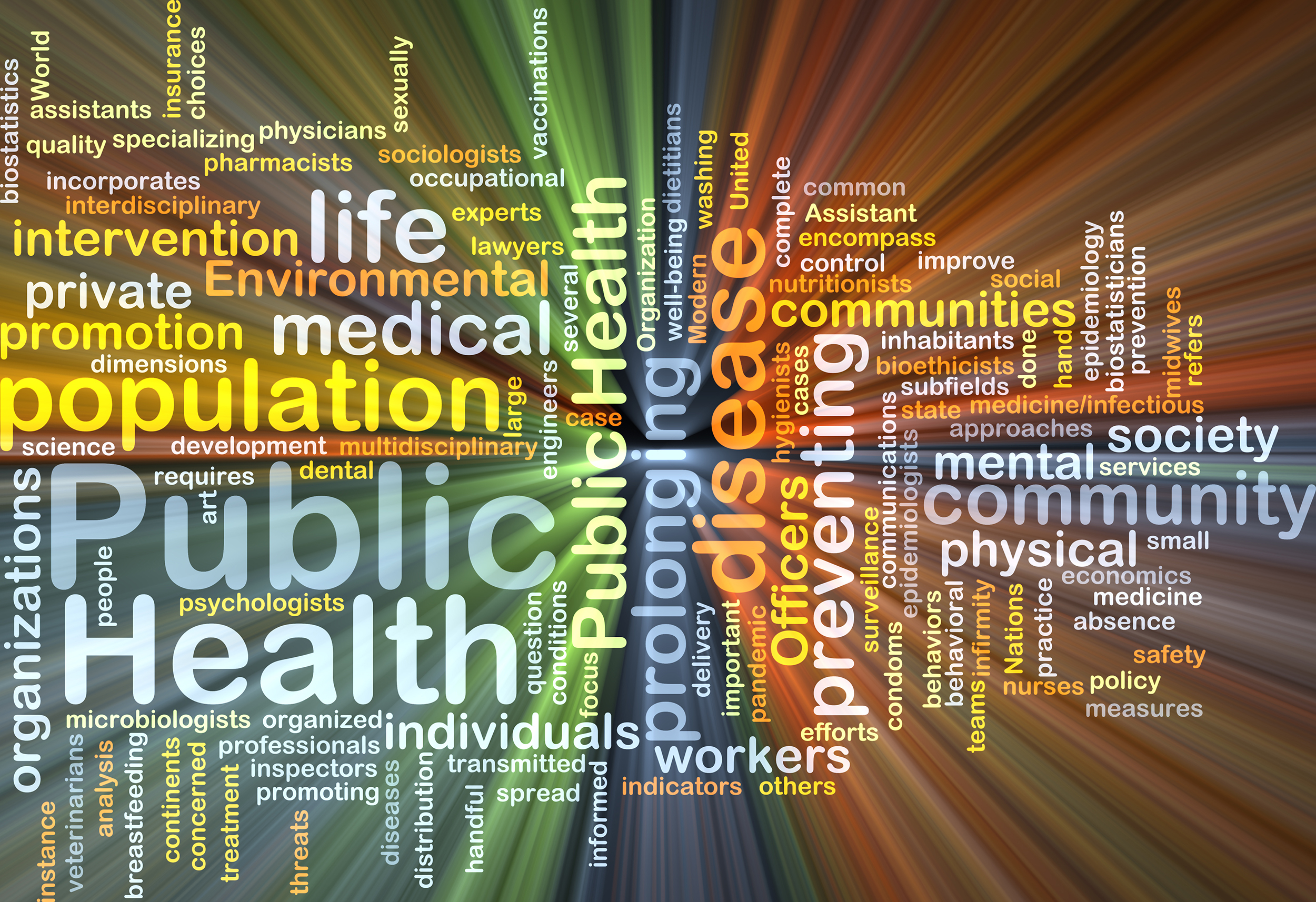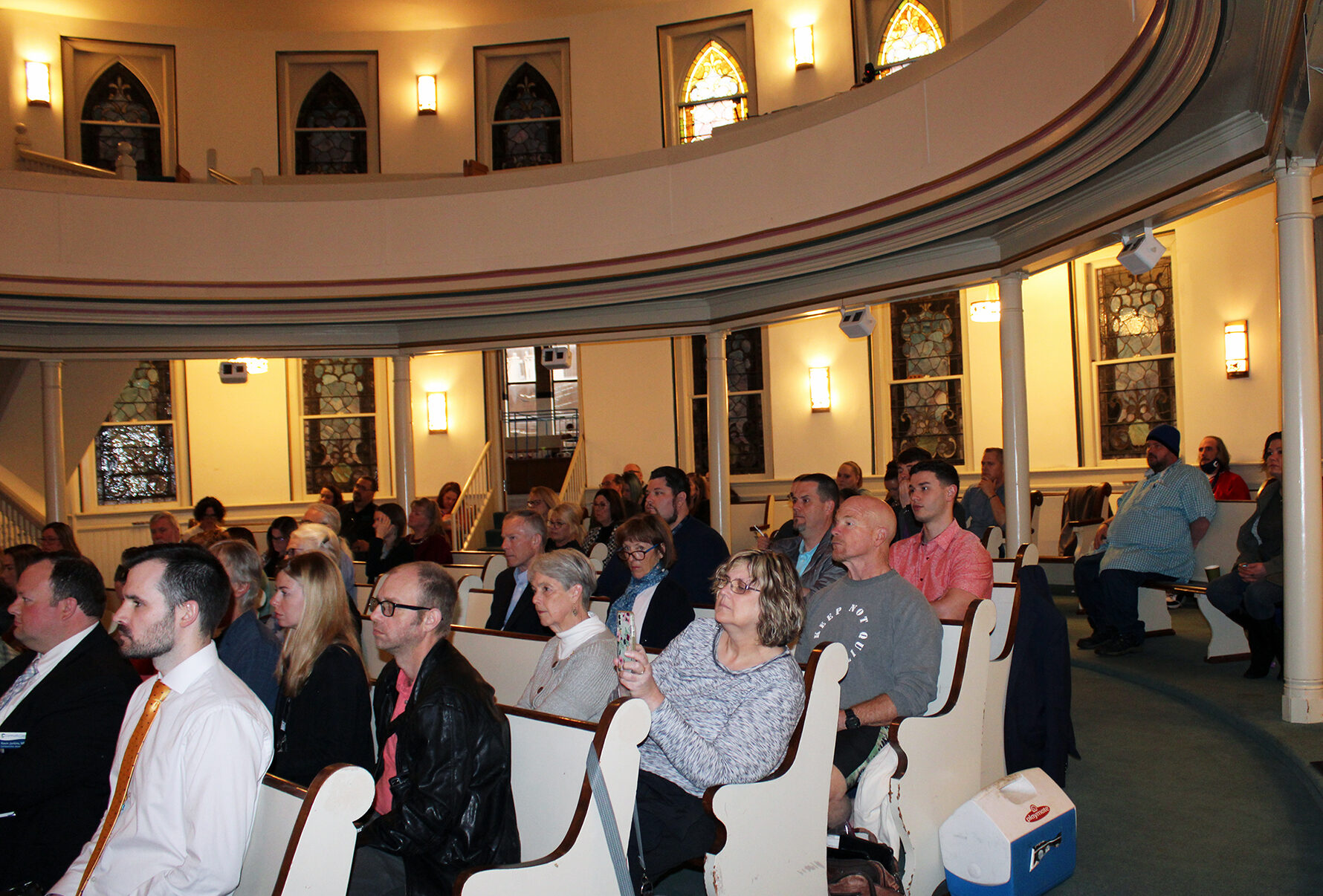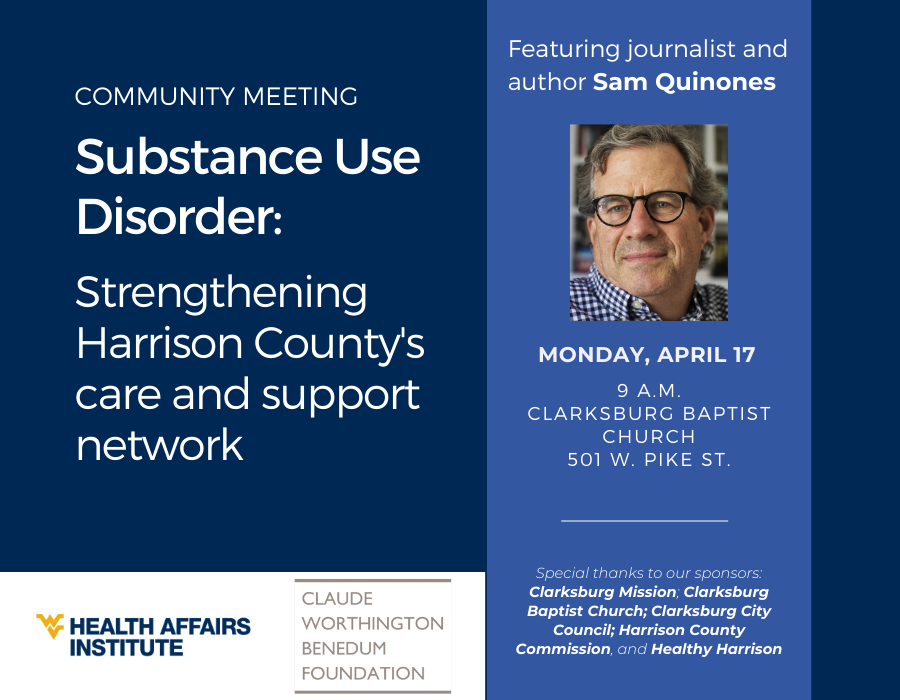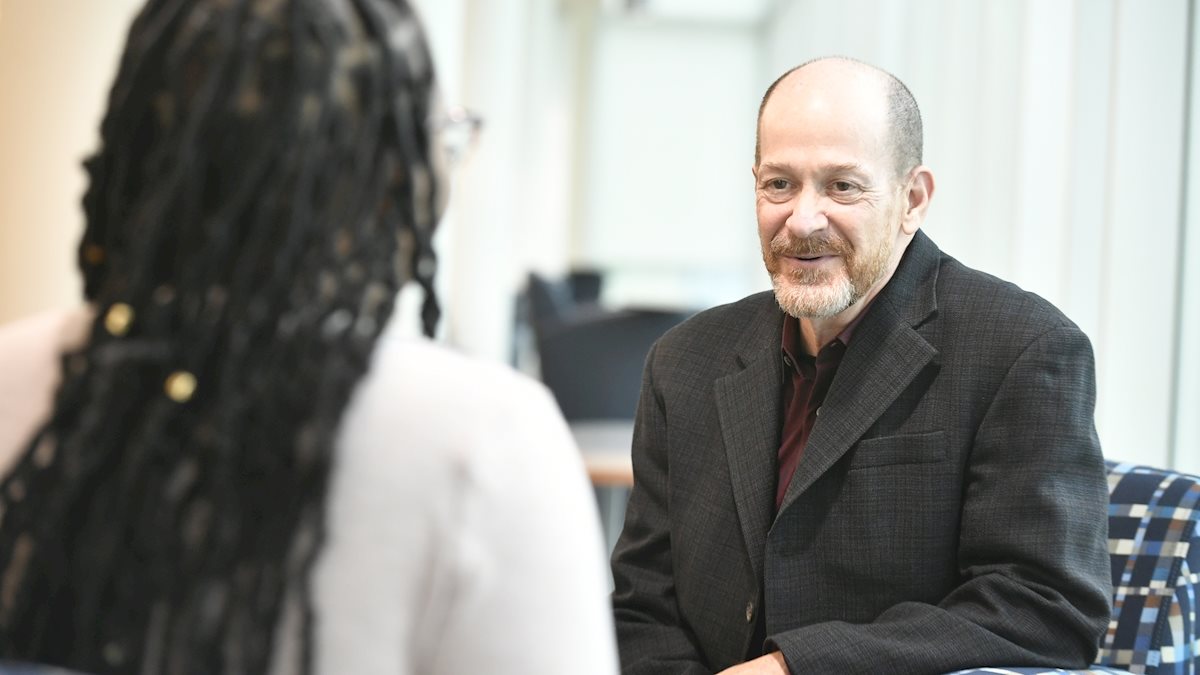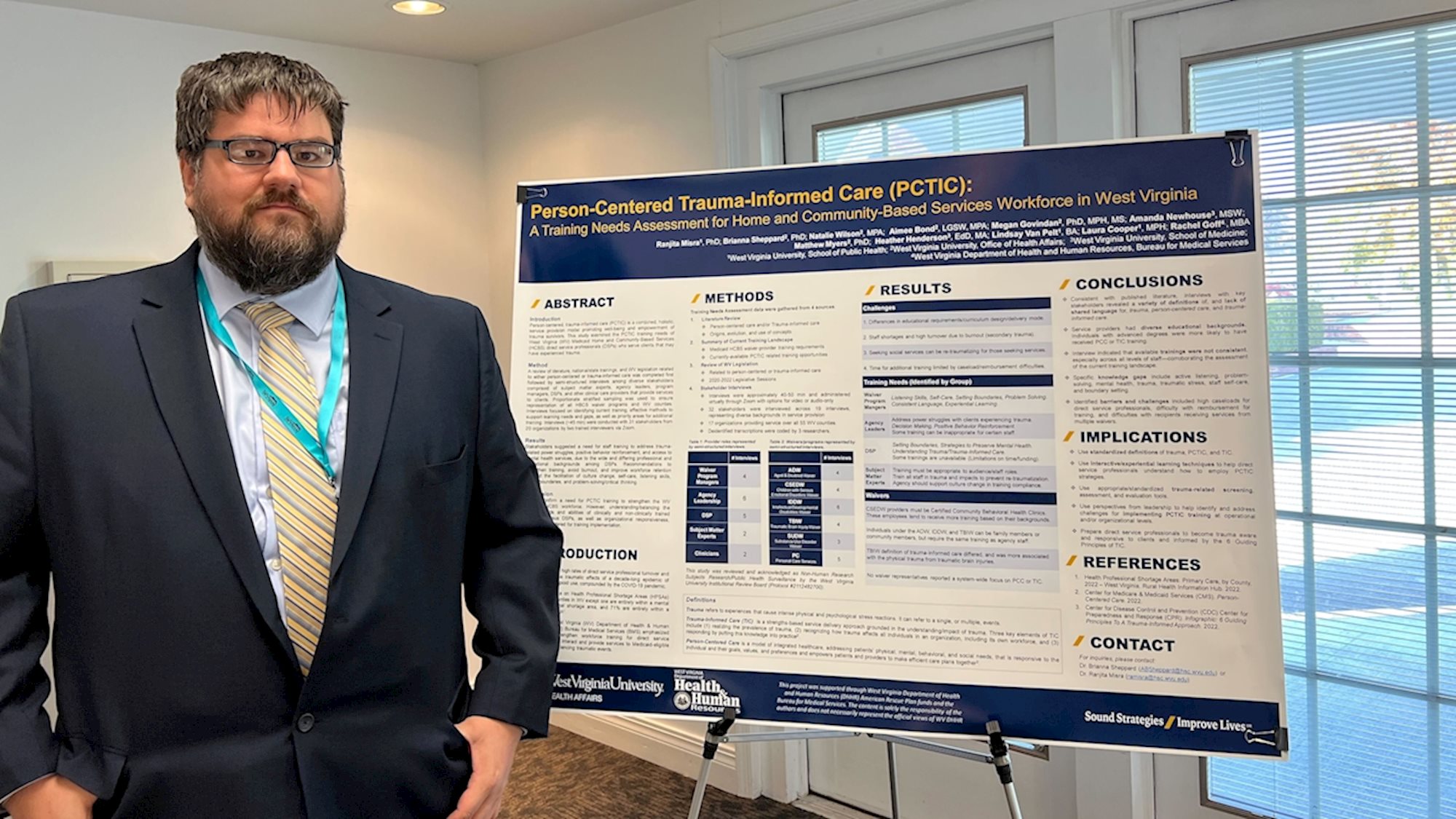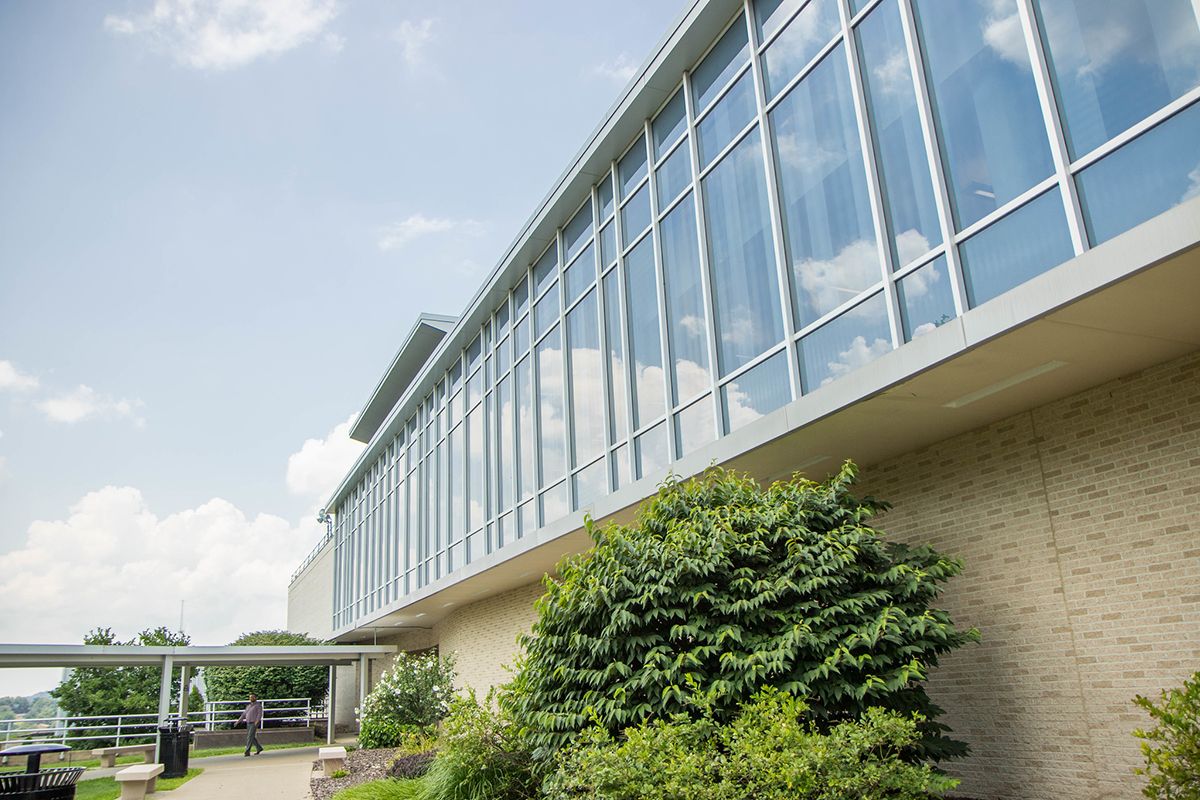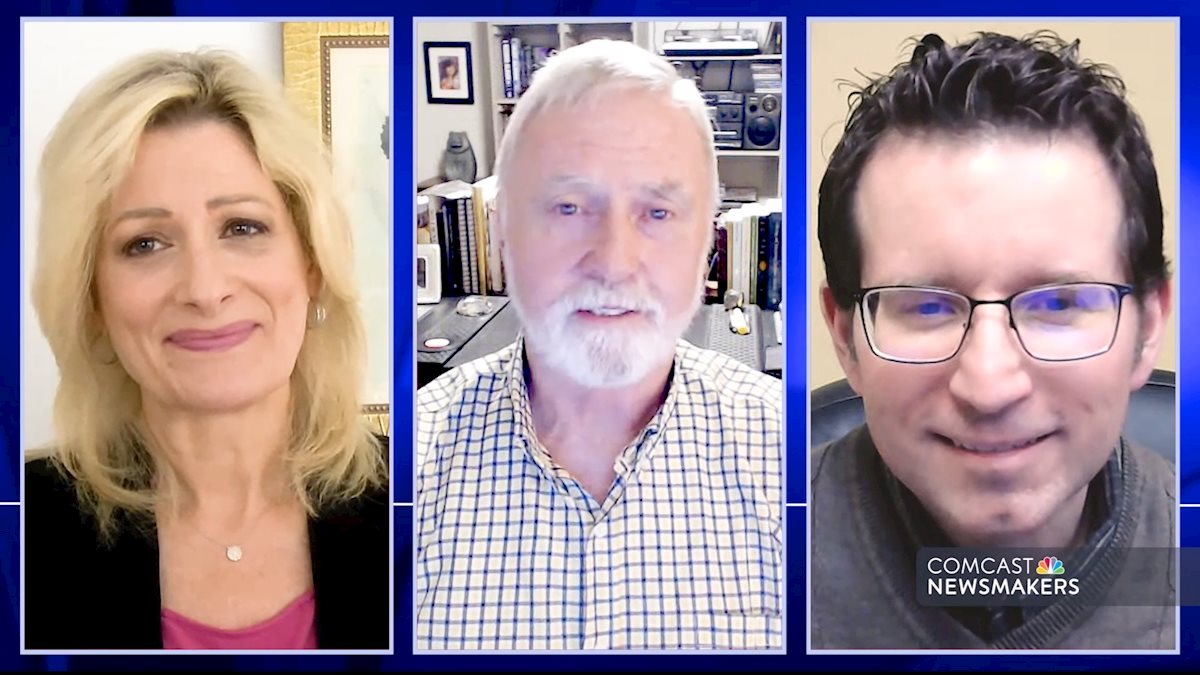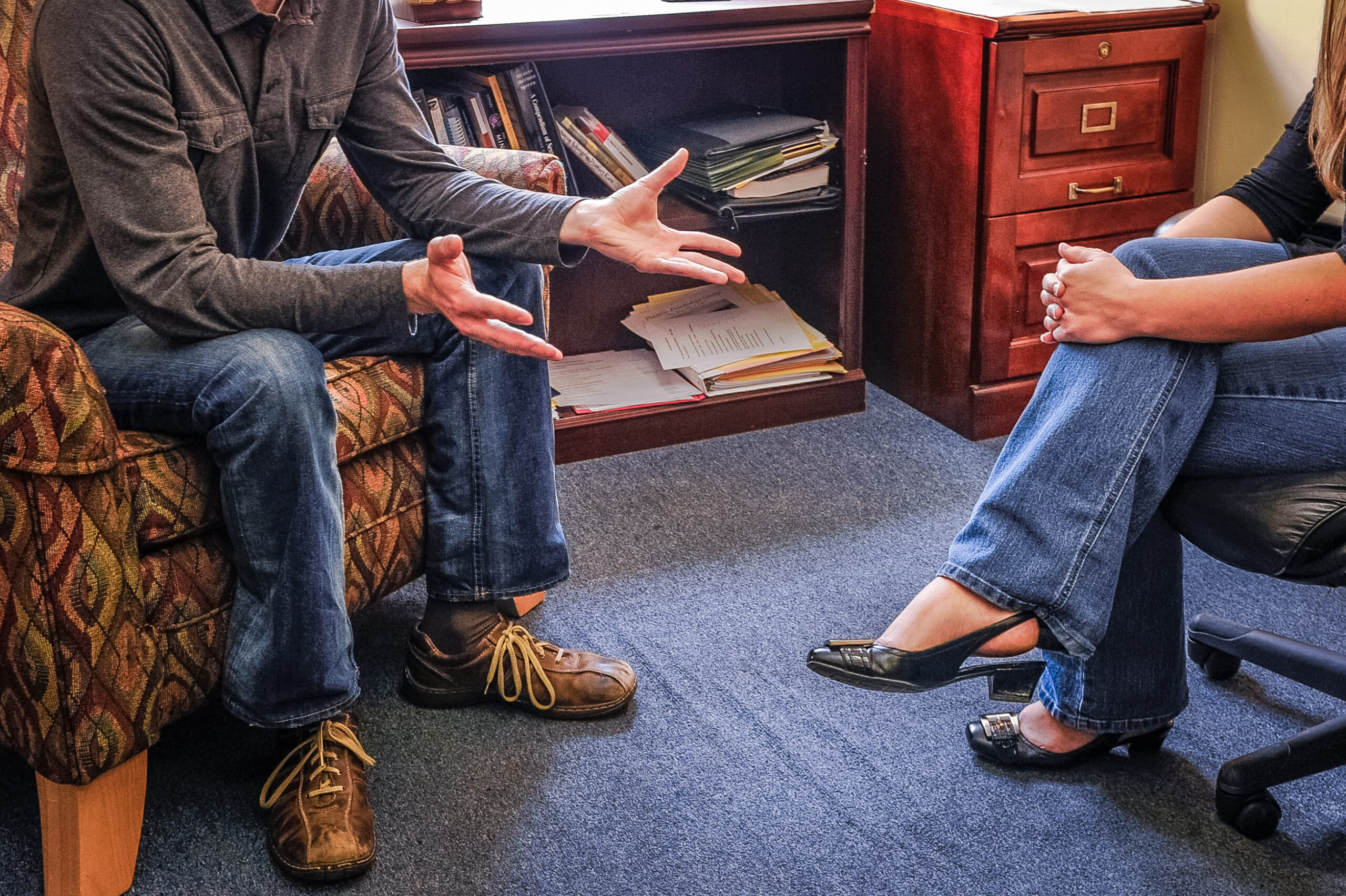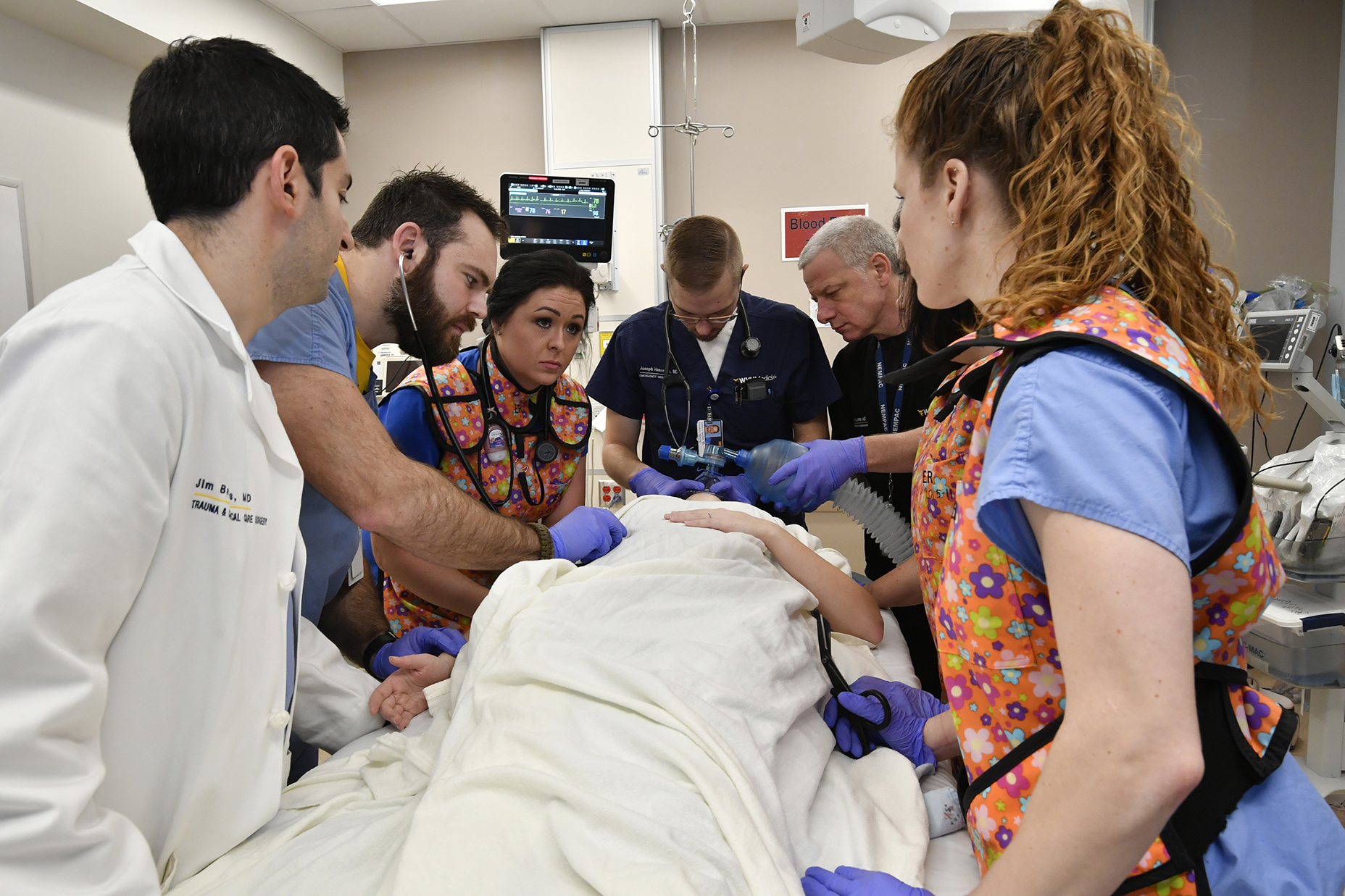‘The opposite of addiction is connection:’ WVU Health Affairs Institute project strengthens relationships among substance use disorder, social service providers
According to the 2023 Medicaid and CHIP (MAC) Scorecard, West Virginia is currently one of four states leading the nation in helping individuals initiate and engage in treatment for substance use disorder (SUD), including alcohol, opioid, and other drug abuse or dependence.
To better understand the system that facilitates such recovery efforts in West Virginia, WVU Health Affairs Institute explored communication between SUD and health-related social service providers in Harrison County. Are providers working together across networks to meet SUD patients’ often multilayered health needs? Are providers aware of other care and support services offered outside their own organizations?
Teaming up with local community leaders, Health Affairs aimed to answer these questions by examining Harrison County’s network of organizations that provide support services to people living with SUD.
“I feel like many people may get into a treatment or recovery program, but they may have other needs that the provider of those services doesn’t understand or doesn’t detect,” Health Affairs research associate Herb Linn said on a recent podcast. Healthy Harrison is a nonprofit with a vision to measurably improve the health and wellness of the citizens in Harrison County. “I’ve been looking for a way to investigate the operation of networks of providers. … Social network analysis looks at the connections and relationships between organizations that provide services.”
According to Linn, social network analysis is useful for looking at the connection, coordination, and integration of services between organizations.
“Too often people run through a course of treatment, get discharged, then slip back through the cracks of the social network that should be protecting people,” said Linn.

Compounding the issue is lack of communication between health service providers, as getting people into treatment does not ensure more efficient coordination of care, Linn says. Lou Ortenzio, chair of Healthy Harrison’s sub-committee on substance abuse, has been integral to county coordination throughout the Health Affairs project.
“The fortunate fact is we have more and more care than ever before; in fact, some areas have had a thousand percent increase in the amount of care available in that area, but not everyone knows about those aspects or providers, not every provider knows about other providers in their area,” said Ortenzio. “People work in silos, that’s just human nature.”
Initially supported by the West Virginia Department of Human Services, Bureau for Behavioral Health, State Opioid Response (SOR) Medical Services grant through Substance Abuse and Mental Health Services Administration (SAMHSA), the pilot project began by establishing a baseline of how Harrison County’s SUD and social service provider network functions, then implemented interventions aimed at increasing awareness and interactions among networked providers.
The main intervention implemented during the SOR-funded period was the revival of a series of monthly meetings in Harrison County that ceased due to the COVID-19 pandemic. These meetings, which resumed in December 2021 under the name Discover Recovery and under the guidance of the county’s Healthy Harrison initiative, gave providers and other local stakeholders an opportunity to learn more about local resources and to exchange information.
“We were able to uniquely measure awareness, communication, association, and referral relationships among providers. These are key in making the network or system function optimally,” Ortenzio says. “…The opposite of addiction is connection. Connection is key for a healthy network or system of care.”
In summer 2022, the team employed social network analysis to study the intervention’s effects. The data revealed that interactions among providers in the network increased by 13% overall during the study period, with the largest increases reported by providers who were connected due to being members of a common umbrella association (104%) and those who reported increased exchanges of information (46%) as a result.
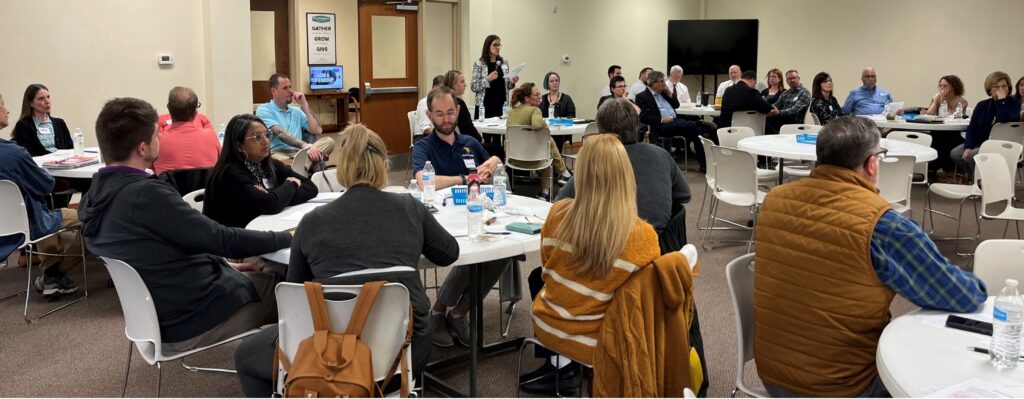
“It [social network analysis] became a good tool for doing some actual community intervention work…” Linn said.
Through the implementation of the monthly Discover Recovery meetings, substance use disorder providers, consumers, and social services providers gather to discuss Harrison County’s resources and how best to fill gaps in the network. Once Discovery Recovery meetings resumed post-pandemic, Health Affairs surveyors saw a significant increase in functionality of the network system.
“We found after that first year that there was a 104% increase in the providers who say they have engaged with more providers and built relationships,” Linn said. “…We also noticed that just starting to study the community, getting a lot of people involved, bumped up the other interactions we were studying. It bumped up the actual awareness of other providers; it bumped up the exchange of information on patients and clients; and it bumped up referrals of patients and receipt of referrals from other organizations.”
With an established baseline and boosted awareness, the team was granted additional funding from the Claude Worthington Benedum Foundation – awarded via the WVU Foundation – to continue and expand their intervention work from January to December 2023. The project’s next goal was to increase the number of referrals being exchanged between providers.
“We needed to do another year’s worth of work and see if we can raise the level of referrals. … It makes a lot of intuitive sense that referring patients to the services they need when they need them will get the highest yield in terms of improving patients’ well-being, and the community’s well-being,” Linn said.
In addition to the series of network-strengthening meetings, the team prepared and disseminated more than 50 social network analysis reports tailored to individual providers. These were sent to every provider who completed the initial and follow-up surveys in 2021 and 2022.
In the final survey conducted in December 2023, provider responses revealed that overall interactions in the network increased by nearly 30%, and referral relationships increased by 13%. With reported increases in knowledge of other providers and information exchanged through Discover Recovery meetings, it’s clear that Harrison County’s network is becoming more connected.
“We know [with] the more care, the more people get into recovery and live the successful, prosperous, abundant life that’s planned for them, not struggling the way they are,” Ortenzio said. “I think the public perception about addiction is that folks don’t get better. … There’s still stigma out there, still judgment against those with substance use disorder, with addiction. But I think we’re doing better.”
Ultimately, the project team hopes to expand beyond Harrison and observe the potential impact of the approach in other West Virginia counties. With the end of the funding period, team
“What’s characteristic of people in Harrison County is they want to help one another,” Linn says. “They want to solve problems and that’s true I think across our great state.”
To learn more, visit the Healthy Harrison Facebook page—“Change Your State.”



